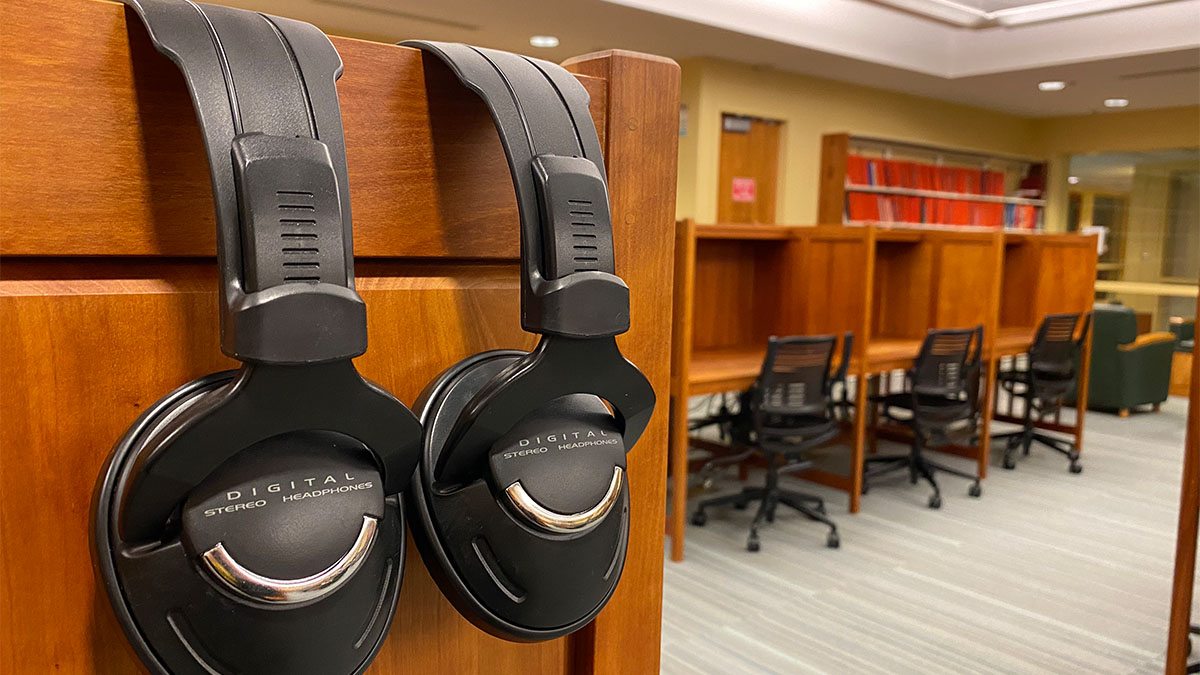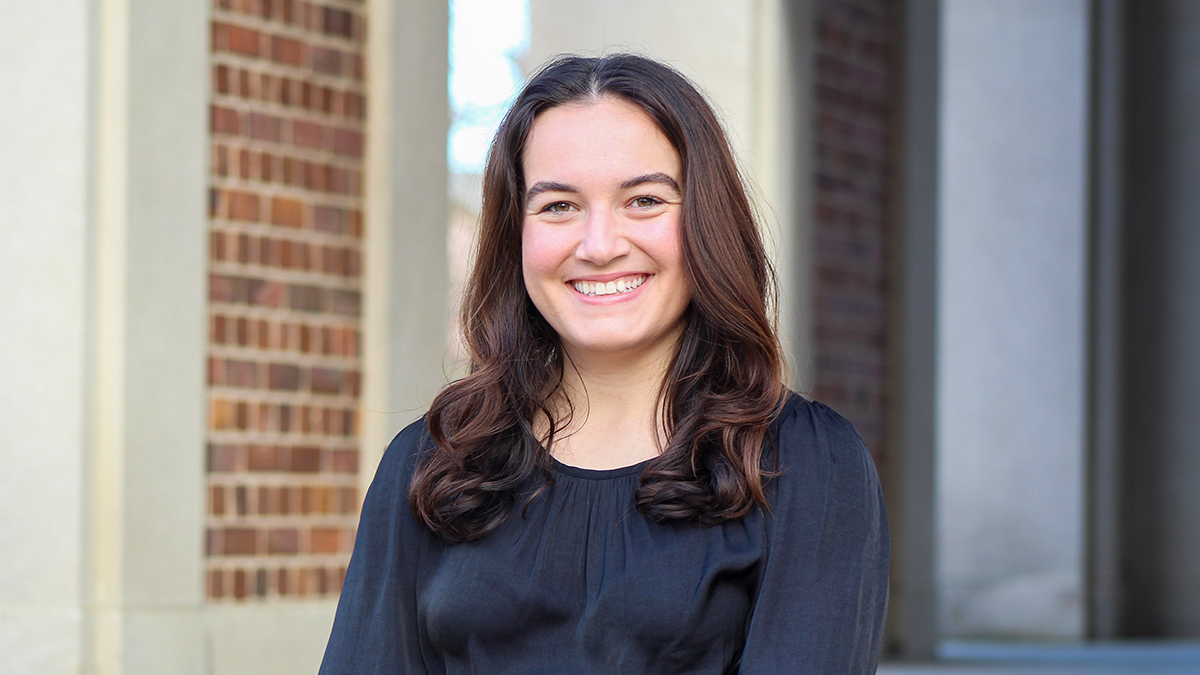A center for boosting digital literacy
Need help creating or learning about digital media and design? The University Libraries’ Media and Design Center is here for you.

The College of Arts & Sciences course ENGL 105, required for all students, is one example of how digital media is being integrated into coursework at Carolina. Instructors use project-based assignments to teach students how to write in professional, academic genres. Certain projects require the use of video and other digital tools. But what if an instructor or student isn’t up to speed with the different software, production techniques and possibilities for visual and audio design?
The University Libraries’ Media and Design Center can help.
Located in the Robert B. House Undergraduate Library, the Media and Design Center came about after the Media Resources Center merged with the Digital Design Lab. These two services combined over a year ago, said Winifred Metz, media librarian and head of the MDC, but the name change became official in January 2021.
Although the MDC’s physical labs are not currently open to the campus community because of the pandemic, the center still offers media instruction via Zoom sessions or on its website and remote service for anyone on campus who needs assistance with creating and understanding different types of visual media.
The MDC supports campus by offering instruction in digital literacy, remote support and media production resources, research support and film programming, as well as a curated physical and digital collection of films, television and other types of visual media for the University. It aims to meet the needs of as many departments on campus as possible, while working with both the consumption and analysis of film and media and consulting directly with faculty and instructors about how to use these technologies in the classroom.
The physical labs in the MDC offer computers with software for film design, visual essays, web development and producing print media, as well as an audio lab and podcast studio.
“There’s a digital literacy component in the ENGL 105 course curriculum, so we do a lot to support students’ visual and digital communication skills, helping students create digital media like short films, PSAs, visual essays, TED-style talks or podcasts,” Metz said. “Anything to help students communicate their research or projects visually.”
Beyond ENGL 105, Metz said the MDC’s reach is broad, helping instructors with everything from nursing and public health to women’s and gender studies and foreign languages. The MDC also partners with Adobe and runs faculty course development grants to help instructors better utilize different types of Adobe software in their teaching. These types of courses differ depending on whether the class is made up of undergraduate or graduate students, but Metz said they try to work with everybody, across all departments, centers or schools.
“One of the things that I think is so important about the work we do and the services we provide at the MDC is that we’re helping people learn or hone visual and digital communication skills, which are increasingly needed in so many fields,” Metz said.
The MDC provides personal consultations to faculty, staff and students. Metz said she and her team are ready to help at any stage of the development or production process.
“Even if it’s just a glimmer of an idea, or someone has never made what it is they’re envisioning or have been assigned and don’t know where to start,” Metz said. “We’re here to help them get started, beginning with a storyboard on through to rubrics or closing credits.”
The MDC also provides online trainings with step-by-step instructions or videos for students and faculty. These trainings include videos detailing how to screen record on Zoom, podcast dos and don’ts, introductory classes for Adobe Audition and Premiere and other “how-to” guides for making visual and audio projects.
In addition to providing different types of training to help students and faculty better understand how to use the resources that are available to them, Metz said that the MDC aims to support people’s personal and creative endeavors. Here are a few things the MDC has helped the campus community with:
- graduate research,
- grant advising for camera or recording equipment,
- book cover design for publishing authors,
- poster research and
- digital literacy engagement with prospective students through Project Uplift.
Metz likes to joke that the Robert B. House Undergraduate Library is the Carolina community’s “house away from home.” She’s amazed by the number of people on campus who are given instruction and support at the Undergraduate Library, many of whom choose to return to the MDC to learn more or cultivate their skills.
The MDC is for beginners and experts alike, and Metz and her team members are willing to do whatever it takes to help faculty, staff and students make the best projects possible. From podcasts and short films to TikToks and visual essays, Metz said she wants people to know that the MDC is available and ready to help.
“Whether it’s curricular, extracurricular or personal and creative, we’re here to support the Carolina community,” Metz said.




